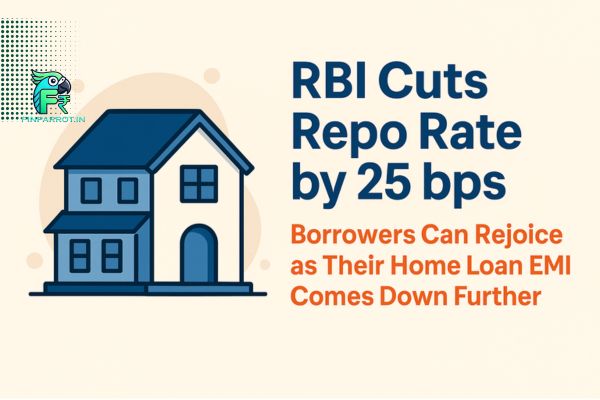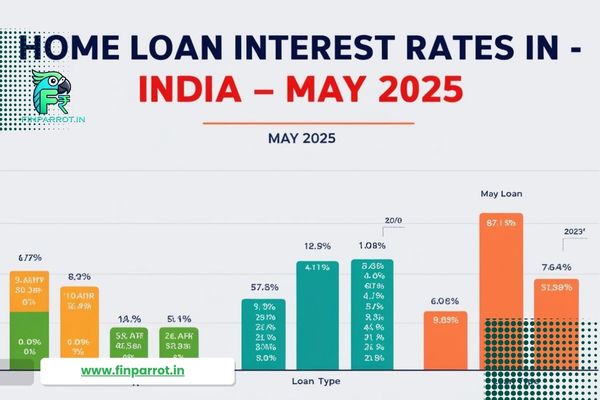Introduction
Tax slabs and exemptions underwent substantial modifications in the new tax regime, which impacted taxpayers’ financial decisions. Lower tax rates accompany the new regime, but all tax breaks in the previous system are eliminated. The tax system revision affects individual financial management processes through modifications to approval criteria for loans and computing EMI amounts. Knowledge of these tax system modifications enables people and companies to make well-informed financial decisions. Analyzing the tax regime implications toward loans combined with available deductions and repayment possibilities will allow taxpayers to build better financial strategies to ensure stability and expansion. Understanding the new tax regime impact loans EMI is crucial for tailoring financial plans to individual circumstances. (Note: Individual circumstances vary widely, making personalized financial planning essential.)
Tax Benefits on Personal Loans – Understand whether personal loan interest payments offer tax benefits and how they impact your finances.
Decoding the New Tax Landscape
- The new tax regime provides simplified taxation through basic rate reductions, eliminating previous tax reduction techniques that existed under the old system.
- During the previous tax era, people received deductions through home loan interest payments, insurance premiums, contributions to provident funds, and various tax-savings tools under sections 80C, 80D, and 24(b).
- The modern tax management system eliminates fundamental deductions such as the House Rent Allowance, standard deductions, and home loan interest deductions, which negatively impact standard workers and self-employed professionals.
- Taxpayers need to check if their untaxed income will produce savings after the new taxation system eliminates exemptions because that determines their economic position.
- Under the new income tax system, people with essential tax deductions experience better outcomes, but those responsible for managing several tax-saving instruments and loans would receive more benefits from the old tax regime.
- Additional Note: Individual financial situations vary; personalized financial planning is crucial to determine how the removal of exemptions and deductions will affect each unique circumstance.
Impact on Personal Loan Eligibility
- Personal loan eligibility increases because lenders use post-tax income (i.e., net income after taxes) to judge creditworthiness after employees become eligible for greater home earnings due to lower tax obligations.
- An applicant’s loan terms and maximum approval amount improve when they have higher disposable income according to lenders’ evaluation process.
- Borrowers who take personal loans cannot deduct interest expenses under either tax regime since the new system does not result in a loss of tax benefits.
- People who utilize personal loans for business ventures or investments will not receive tax deductions that existed under the previous tax system.
- Borrowers must evaluate their financing choices based on the changing relationship between income gains, interest payments, and loan term length.
- Clarification: Post-tax income is the income remaining after all applicable taxes have been deducted. This figure is crucial for determining true disposable income and, consequently, loan eligibility.
Home Loan Deductions: What’s New?
- The main disadvantage of the new tax framework is that it eliminates homeowners’ tax incentives from their home loans, thus reducing the benefits under previous taxation rules.
- Under the old regime: The interest expenses of home loans worth up to ₹2 lakh received tax benefits through Section 24(b). (Please note that these figures are subject to change as tax rules evolve.)
- Under Section 80C of the income tax, a deduction of up to ₹1.5 lakh for home principal repayment was available. (Again, these figures may be revised in future tax updates.)
- Two extra deductions existed for first-time homebuyers through Sections 80EE and 80EEA.
- The abolishment of home loan-related tax benefits during the new tax regime makes homeownership less appealing from a tax planning standpoint.
- Homeowners must evaluate if tax rate reductions yield more savings than deduction removals.
- The final decision should depend on financial planning goals, as well as the initial loan amounts and interest rates charged to the borrower.
How to Negotiate for a Low Interest Rate on Your Home Loan? – Learn effective strategies to secure the best home loan interest rate and save money.
Implications for Business & MSME Loans
- The new tax system decreases corporate tax rates through its provisions, which seek to enhance business competitiveness and improve profit-generation capabilities.
- A decreased tax responsibility for MSMEs and startups creates two advantages: increased liquidity and more availability for investment in expansion initiatives.
- Businesses need to adjust their financial planning methods after specific deductions for business loan interest payments are eliminated to develop new approaches to tax reduction.
- Companies that formerly used depreciation tax breaks, investment deductions, and interest tax deductions need to revise their loan planning approaches.
- Enhanced post-tax financial flow would support companies in strengthening their repayment capability, enabling them to acquire extra money and work toward improved interest terms.
Real-World EMI Affordability
- Reducing tax rates leads to higher net income, improving EMI affordability by making mortgage payments more straightforward.
- More disposable income enables borrowers to pay their loans earlier, cutting down their interest expenses.
- Removal of home and business loan interest deductions will increase the actual borrowing costs.
- The calculation of EMI affordability should be specific when people need to manage multiple loans so that the advantages of reduced taxes will be greater than the disadvantages of not receiving tax benefits for repayment.
- Loan calculators from financial planning tools will help people accurately assess and compare loan repayment options for old and new tax regimes.
- Note: It is important to consider your unique financial situation when evaluating EMI affordability under these new conditions.
Credit Score vs Income for Loan Approval – Find out which matters more—your credit score or income—when applying for a loan
Optimizing Your Tax Strategy
- A taxpayer needs to evaluate their financial responsibilities, present and future deductions, and loan structures to decide between the old and new tax systems.
- People who have several tax-saving investments, home loans, and business costs should consider using the old tax system as their primary choice.
- People with basic income patterns and fewer deductions typically benefit more from the reduced tax rates available under the new system.
- To achieve maximum tax benefits, businesses and MSMEs should execute thorough financial assessments that integrate cash flow control and loan reimbursement strategies.
- Financial advisors and tax professionals, who offer professional guidance, assist taxpayers in understanding and selecting the right tax scheme between the old and new systems.
- Reminder: Personalized financial planning and consultation with professionals are essential to tailor strategies to individual circumstances.
FAQ’s
Is loan EMI exempted from income tax?
No, loan EMI payments are not exempt from income tax in either tax regime.
Conclusion
Flawless financial planning becomes essential because the new tax regime affects how borrowers afford their loans and manage EMI payments and tax deductions. The combination of reduced tax rates with reduced exemptions in the tax regime distorts long-term financial obligations, mainly affecting homeowners and businesses that use exclusions. Lenders must perform financial strategy reviews to determine whether the increased money after taxes offsets the elimination of tax deductions. Companies must analyze whether lower corporate taxes provide sufficient value compared to defunct tax deductions.
Explore More Cleartax for income tax rules, deductions, exemptions, and financial planning.
Disclaimer: This content is for informational purposes only and does not constitute financial advice. For personalized guidance, please consult a qualified tax professional, Ms.Devi C.A., for guidance tailored to your specific circumstances.















